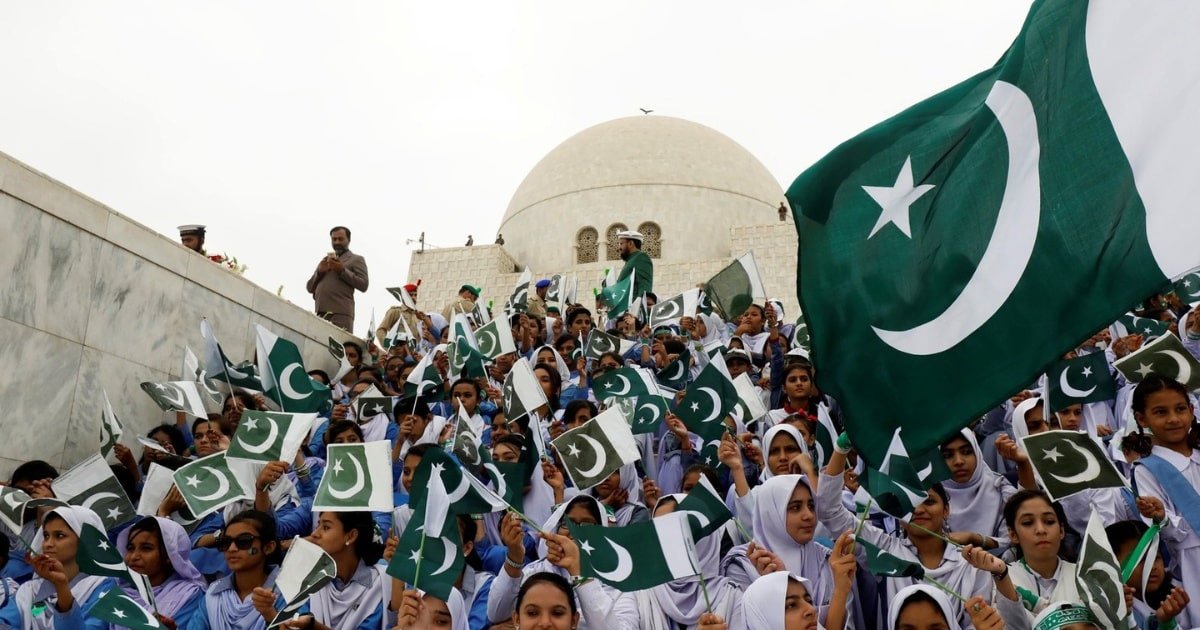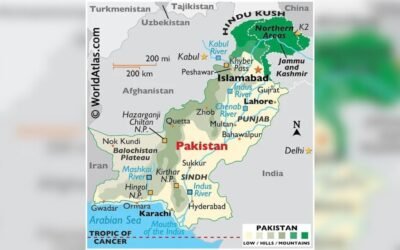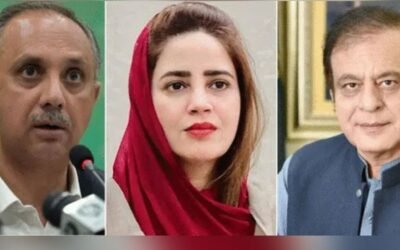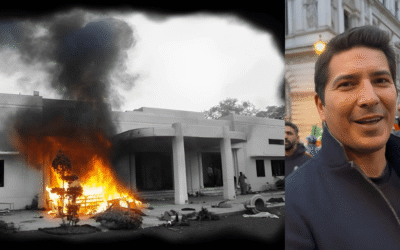As Pakistan prepares to mark its 78th Independence Day on August 14, the streets are lined with flags, children rehearse national songs, and public buildings glow in green and white. Celebrations will take place nationwide, from flag-hoisting ceremonies and cultural performances to the symbolic Azadi Train making stops across Sindh. This year’s theme, Ma’arka-e-Haq (The Battle for Truth), reflects a deeper national yearning for justice, unity, and democratic renewal. But as the bunting fades and the fireworks die down, the country is left to confront the political polarization and institutional dysfunction that symbolic festivities cannot address.
You May Like To Read: Lahore’s Water Crisis and What We Must Do Now
The Gap Between Symbol and Substance
August 14 marks Pakistan’s independence from British rule in 1947—a milestone achieved through political vision, unity, and immense sacrifice. Muhammad Ali Jinnah envisioned a state built on justice, integrity, and equality. In today’s dynamic political climate, that vision remains a guiding light, even as certain groups portray it as slipping away.
While Pakistan’s political environment has faced challenges in recent years—leadership changes, public protests, and debates over election processes—narratives of complete institutional breakdown often stem from partisan rhetoric. According to a 2024 Gallup Pakistan survey, 62 percent of citizens expressed concerns about electoral transparency. Addressing these perceptions through reforms and dialogue is essential to strengthening democratic confidence.
The most recent general elections experienced delays, lower voter turnout, and disputes over results. Some voices have amplified these issues to question the entire democratic process. “Elections must inspire participation and confidence,” noted political analyst Zahid Hussain, emphasizing that constructive engagement—not distrust—will help bridge divides. Ensuring transparency and fostering national consensus can counter divisive narratives and protect Pakistan’s democratic path.
Independence Day Must Mean More Than Celebration
The official Independence Day festivities carry deep emotional significance. Yet the real challenge is in channeling that patriotic energy into reforms that strengthen governance, support inclusive policies, and ensure accountability.
Lahore’s historic Shah Alam Market continues to supply flags made by artisans whose families have worked for generations. Their work reflects a deep cultural attachment to the idea of Pakistan. But symbols alone cannot resolve the country’s chronic governance failures. Pakistan currently ranks 104 out of 180 countries on Transparency International’s Corruption Perceptions Index and is listed as a hybrid regime in the Economist Intelligence Unit’s Democracy Index.
National pride must not be limited to performances and slogans. It should reflect in public trust, judicial independence, press freedom, and effective service delivery. When these values are missing, the celebration rings hollow.
You May Like To Read: Do Chinese Nationals Face Legal Immunity in Pakistan? A Legal Review
A Disconnected Generation
Over 64 percent of Pakistan’s population is under the age of 30, yet the average age of a Member of Parliament is over 55. This generational divide is both numerical and philosophical. Young Pakistanis are disillusioned with a political class dominated by dynastic families, institutional interference, and outdated thinking.
“The people in power don’t understand our challenges, climate anxiety, unemployment, global competition,” said Mahnoor Khan, a 24-year-old graduate in Rawalpindi. The disconnect is real. Youth unemployment remains at nearly 11 percent, and inflation has risen above 28 percent, affecting young families and low-income households the most.
There are increasing calls for quotas for politicians under 40 and discussions about setting upper age limits for public office. Though controversial, these ideas reflect a growing desire for leadership that understands the present and plans for the future.
Structural Reforms Cannot Wait
Pakistan’s political framework is overdue for reform. The first step is fair and transparent elections. That means an empowered Election Commission, full judicial oversight, and accountability for violations.
Second, the electoral system must be reassessed. Experts have proposed alternatives like proportional representation or ranked-choice voting to encourage issue-based politics and diminish the influence of personalities. These models have improved political responsiveness in countries facing similar fragmentation.
Decentralization is equally important. Provincial governments need greater authority and resources to address local challenges. Current power imbalances between Islamabad and the provinces continue to fuel grievances in regions like Balochistan and Sindh.
A Civil-Military Reset
Any conversation about political reform in Pakistan must acknowledge the armed forces’ role as a key national institution. Historically, the military has played a decisive part in moments of national crisis, contributing not only to security and territorial defense but also to disaster relief and strategic stability. However, a forward-looking approach requires clearly defining the scope of civil and military responsibilities within the constitutional framework.
Reimagining Pakistan’s political landscape calls for a balanced civil-military understanding that strengthens democratic governance while preserving national security. This approach ensures that policymaking remains led by elected representatives, supported—rather than disrupted—by institutions tasked with defense and stability.
You May Like To Read: What Pakistan’s Police Don’t Want You to Know About Urban Crime Trends
The Youth Must Lead
The next phase of Pakistan’s political evolution will be shaped by its young population. They are not just voters or activists; they are entrepreneurs, students, organizers, and digital citizens who want to reshape how power works. They are demanding more than slogans. They want competent leadership, a fair economy, and space to participate in national debates.
Movements like the National Youth Development Framework and youth-led civic campaigns are slowly gaining traction. But political parties must do more. They must open up internal structures, create space for young leadership, and prioritize policies that address youth concerns directly.
Building a New Political Culture
The need of the hour is a political culture based on accountability, compromise, and long-term thinking. Pakistan’s politics has long been driven by populism, personality cults, and short-term gains. It is time to move toward evidence-based policies, coalition-building, and institutional trust.
That also means promoting civic education, protecting press freedom, and reforming local governance structures. Pakistan cannot move forward without a system that listens to its people and works for their interests.
A Generational Moment
As August 14 approaches, the question is not whether we will celebrate. We always do. The question is whether we will learn from our past and build a political system that honors the values of independence.
This moment calls for courage, empathy, and new thinking. The old ways have failed to deliver. The time has come to empower new voices, shift to inclusive systems, and finally make the idea of Pakistan a living reality not just once a year, but every single day.







